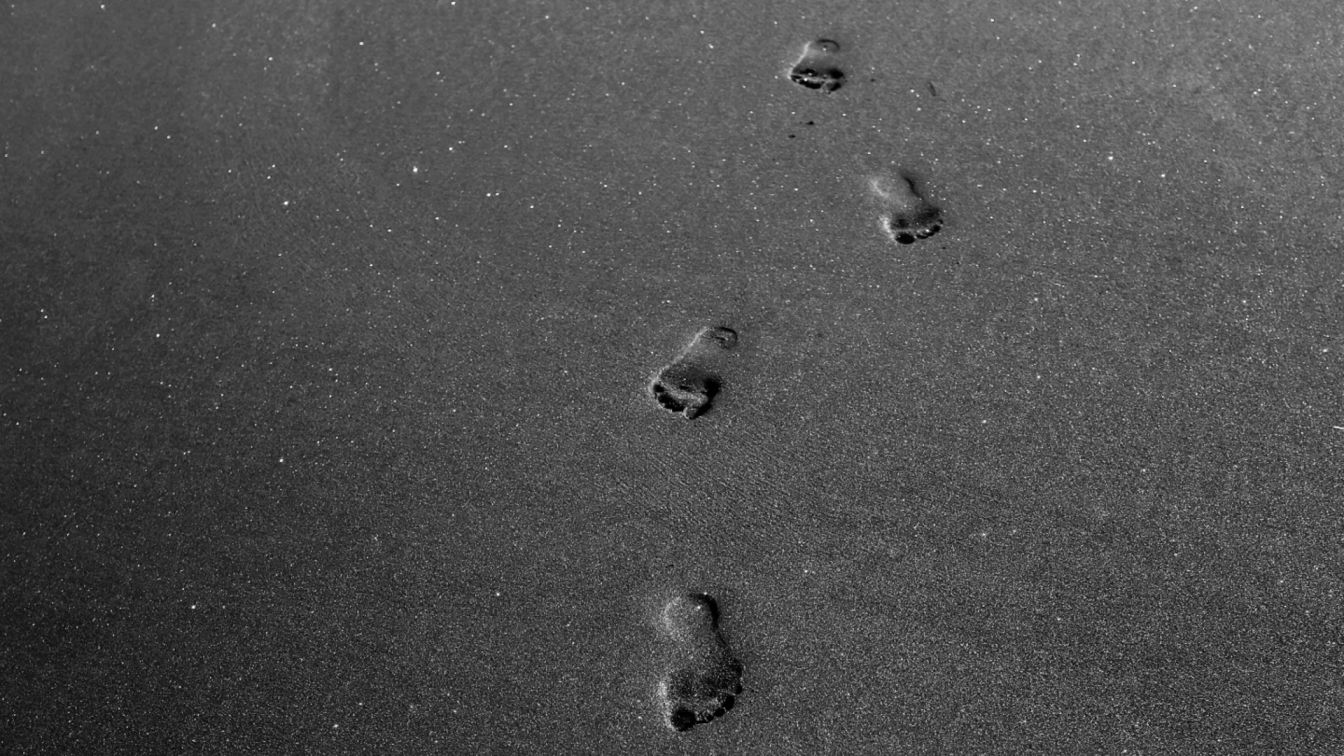The first time I visited Uncle Idris’s mansion was with my mother. She was wearing a dress; a low-neckline yellow midi gown that revealed her fine cleavage, with a fishtail end. She was different. The glamour and femininity of the dress created a flattering silhouette that accentuated the curves of her body. Her face, a brighter version of the rest of her skin. I impulsively wished I could wear a badge of ‘she is my mother’ on my forehead, but then suppressed the overwhelming need to always identify with her, as her daughter.
It was always that way; she trying to pass me off as anything but a daughter to anyone who doesn’t know the full story, like her male customers who drove shiny cars, and me; clinging jealously to the little warmth she spared because the contrasting difference in looks was enough to purport her disavowal.
We had met his absence, but we waited until about an hour later when he returned. His driver lugged large shopping bags behind him. Uncle Idris was known for his all-weather generosity. When a need beyond my mother’s floral shop earnings arose, it was he she turned to. When a former landlord threatened to put us out one early rainy season, I overheard her on the phone whispering, ‘It makes no sense, Tee. Give me your house in town’. It was still him. I knew. Most of those shopping bags had followed us home in his available Toyota that day.
Every year, gifts ranging from wristwatches to dresses and shoes turned up in my room, courtesy of him. But his generosity didn’t make him less distant. He was a busy and cold man.
The second time I visited his mansion was to see him for my tuition. I waited downstairs for eternity before the maid called me up.
His white dashiki covered his large torso down to his ankles, a common wear for most big men in Ile Ife. His stomach bulged in a well-rounded shape. Rice crumbs surrounded a half-opened bottled water on the bedside table, evident he just had a meal. Except for the table, the room sparkled. The plush carpeting, velvet drapes, and luxury bedding made me want to denounce where I came from. The air conditioner chilled my short-sleeved tan nape shirt, tucked into faded jeans. The cold was enough to block my nasal tract.
He smiled after I told him about my tuition and how he was my last hope.
“When did your father die?”
I gasped. “I never met him”.
“Ooh! I remember!” He guffawed and I realised he was deliberate. A slight on me, on my mother. She told me how my father abandoned her after she discovered her pregnancy.
“He disappeared”. Her eyes shone in rancor whenever she told me tales about whoever my father was and how heartless he had been to abandon her with a child.
“Omolara”. His resonant voice interrupted my train of thought.
“Your mother is a good woman, but she is very stubborn!” He smiled, exposing his tobacco-stained teeth.
I thought of my mother in her small flower shop at Clifford Crescent, polishing flower vases and whistling. A ritual. She was usually occupied in that space stacked with fresh flowers; roses, lilies, carnations, sunflowers, and a lot more she alone could name. All waiting to be sold off. The fern, ivy and succulents provided a lush green backdrop for the flowers, thereby creating a contrasting texture to make the floral arrangement more visually appealing. The small shop provided our three square meals but failed to provide money for my tuition and upkeep.
One time in the past, I saw a neat bundle of one thousand naira notes carefully tucked away in her underwear box after she denied having any money for my school excursion. I stared at it for a long time, then counted five notes, and hid it in my panties. When she discovered the missing notes, she stripped and flogged me until the neighbors came banging on the door.
“Mummy Omolara! You no get another pikin o!—you don’t have another child o”
She used to go to Grandma for my tuition until the old woman died in a local flight crash in Jos last year. This time around, it was my turn to go and beg for my fees. Even if it meant leaving town for Ipetumodu, I was ready.
Uncle Idris, like I have always known, is a distant uncle, but he was rich enough to see anyone through school. My mother boasted about how he was sponsoring some university students from our hometown. There was hope.
“His money is like the ocean”. She exaggerated. “It will never stop flowing!”
“Don’t you see the kind of gifts he buys for you? Go to him, and your tuition is settled. I wish I had enough money now, but we can barely feed, Lara. This month began with bad sales. He is our last hope”.
Uncle Idris’s phone began ringing. He got up, opened a door I hadn’t noticed at first—because the drapery properly hid it—and went into the balcony. I feed my eyes more, taking in every single thing; the shiny gadgets, the stack of books, obviously unread, on the tiny shelf below his photo portrait. The thick tribal mark on both cheeks, discernible. He returned minutes later, an impish grin on his thick black lips. He settled back on his bed.
“Go and press that bell”. He gestured to a bell switch by his bedside post. I moved with an almost frozen limb. Two minutes later, the maid answered. Her apron, a wild combination of blinding colors.
“Bring juice for her”. The woman nodded at me, her eyes silent and piercing.
“And she will eat before she leave”. My uncle added, getting up to the balcony as his phone rang again. The maid lingered before shutting the door behind her. I began counting seconds. 74 seconds; I had counted a minute and 14 seconds before he returned. Suspense isn’t a good combination with cold.
“I will give you more than your fees, but you will have to make me happy”. He set down his phone on the table, on top of the rice particles.
“Make you happy?” I asked.
He smiled before reaching for his water. He took a generous gulp and resumed.
“Yes”. He smiled again, and I wondered how much tobacco he consumed.
“Fine geh! Come and massage me and I will take care of you”.
The maid rapped on the door, entered, and set a sweating glass of juice before me. She smelled of fresh curry and all the other spices I couldn’t decipher.
I thought of my mother in all her goodness. Her lousy friends she took advice from. Her swift slaps reminded me of how miserable I might have made her. How my existence made her lose a well-paid job and lots of good things. I thought of Korede, who sold ladies’ clothes at the beginning of our street, and how many nights he spent in my mother’s bedroom. I thought of the plastic tasteless fruit juice he brings for me and the breezy manner he calls me ‘fine geh’. I thought of the impossibility of meeting my father and worried about the possibility of quitting school. I got up and climbed into the bed beside him and clamped my eyes shut.
I did not stop after collecting my tuition. I went back again when I needed textbooks, clothes, more food, and pocket money. Even when I didn’t need anything, I went. He would give me bundles of five hundred naira notes, which I hid out in small amounts in all my bags until I exhausted all. I didn’t stop for a long time. The day he refused to see me, I waited downstairs until the maid politely advised that I leave, a mild pity in her eyes this time.
I didn’t stop until the afternoon I went into his room without waiting to be called up. He was humming in the bathroom when I came up. I sat in my favorite chair and waited for him while my eyes wandered around. I know nothing else about Uncle Idris except for his terribly loud snoring and Togolese wife (now in America) whose photo hung high above his 14-inch smart TV. I got up and opened his wardrobe.
My eyes rummaged through his white clothes hanging loosely from the wooden hangers. There were stacks of paper peeping from an old, torn, large brown paper envelope on a black leather box. A paper photo lay upside down among the papers. I picked it, curious to see yet another picture. A toddler with a new tooth holding an air-filled toy rubber aeroplane, giggling to the camera. Her hair sprouted in lazy curls occupying her cranium.
It was the first picture my mother showed me when I became of age. My first toddler photo. It was taken at Abuja on one of the occasions she took me to Grandma. The rubber toy aeroplane had been bought while we waited in traffic from a man who called me ‘fine geh’, according to my mother. She joked about him eyeing an underage child, and he swore it was a mere compliment.
“But you are a fine girl, very fine!” she smiled.
I turned the picture and there it was, written in a familiar handwriting in black ink. I felt you should have at least one picture of your daughter.
The humming stopped, and the shiny white metal door opened. Uncle Idris emerged in a large white robe wrapped around his enormous body, barely covering his protruding gut.
I stared into his panic-filled face before I dropped the picture and ran past him, out of the room, down the stairs, where I bumped into the maid, causing the drink she was carrying to spill. I didn’t stop. I ran past the mess and out of the mansion into the large compound, past his frequently used car, which was parked just before the entrance. I ran past the sea green coloured gate into the street and headed down towards Quarters Bridge, where my mother once told me powerful poisons were sold secretly by core Yoruba herbalists.
Chizitere Madeleine Nwaemesi is a Nigerian writer. Her works have been published in Isele Magazine, African Writer Magazine, The Shallow Tales Review, Efiko Magazine, Akpata Magazine, Punocracy and Ink In Thirds. She is the author of Roses & Prickles. You can find her on Substack , Twitter: @cm_nwaEMEsi, and Instagram: @cm_nwaemesi
Cover image credit: Adrien Olichon


